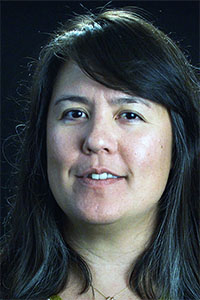
Everyone will need paid leave at some point in their lives, whether to heal from injury or to care for a loved one. No one should keep you from a spouse battling cancer or a new baby needing attention or a parent nearing their final days. So how is it that one of the richest nations on the planet hasn’t found a way to guarantee we can all be good parents to our children and good caregivers for our parents without risking our jobs or our pay?
That’s why we were glad to see growing acknowledgment about the need for paid leave from political leaders across the spectrum, including U.S. Sen. Kyrsten Sinema, D-Ariz. Then we read the details of her proposal with U.S. Sen. Bill Cassidy, R-La.
The first thing we noticed is that their plan has nothing to do with paid leave. It offers no paid time to care for a seriously ill child or other loved one, or to recover from your own illness or injury. It doesn’t even provide paid leave to bond with a new child.
At best, this is a loan for new parents who can afford to opt in, borrowing $5,000 from their upcoming child tax credits. Problem is, all the parents we know need every penny of that tax credit, which doesn’t come close to covering necessities. It’s like robbing Paulette to pay Paulette.
The proposal offers no replacement for wages lost during time away from work, and no guarantee that you’ll have a job to go back to. Forty percent of the workforce is not covered by the Family and Medical Leave Act – nothing requires their employer to hold their job while they’re out. And the Cassidy-Sinema proposal excludes the vast majority of those needing leave to care for a serious personal or family illness.
As Sinema pointed out at an event at American Enterprise Institute, nearly half the residents in Arizona earn low wages and would likely use the loan to pay for child care. That means many would find themselves among the nearly one in four employed mothers in the U.S. who go back to work within two weeks of giving birth.
No way can we sign up for that.
The plan is especially disappointing since there is a pending piece of legislation, the FAMILY Act, that would cover everyone for a range of care needs with a cost-effective, self-sustaining financing system.
The Family And Medical Insurance Leave Act (FAMILY), introduced by U.S. Sen. Kirsten Gillibrand, D-N.Y., and Rep. Rosa DeLaura, D-Conn., which is bipartisan and now has 200 co-sponsors in the House and 35 in the Senate, provides up to 12 weeks paid leave each year to qualifying workers for the birth or adoption of a new child, and for self-care or the care of a seriously ill family member. It would pool small contributions from employees and employers. Discussions are taking place to make the proposal even more effective by learning from programs in the states.
Paid leave plans have been in operation in four states and passed in five more. They guarantee workers paid time for the full range of care purposes. Each one builds on the ones before – mostly with bipartisan support – to create inclusive, effective programs. They have adequate and progressive wage replacement, so that those who earn the least get most or all of their wages during leave. They ensure those workers are able to return to their same or a similar job after their leave. And they have an inclusive definition of family.
Senators Cassidy and Sinema mistakenly narrowed their focus, thinking that’s the only way to get bipartisan support, when in fact meaningful paid leave proposals have gained bipartisan support in multiple states. FAMILY is gaining bipartisan support as well. We urge these two senators to focus on what will actually work for the people they serve, so that all of us can be there for our family and still earn a living.
Wendy Chun-Hoon directs Family Values @ Work, a national network of state coalitions working on paid time to care. Alicia Contreras is executive director of CORAZÓN-AZ.

